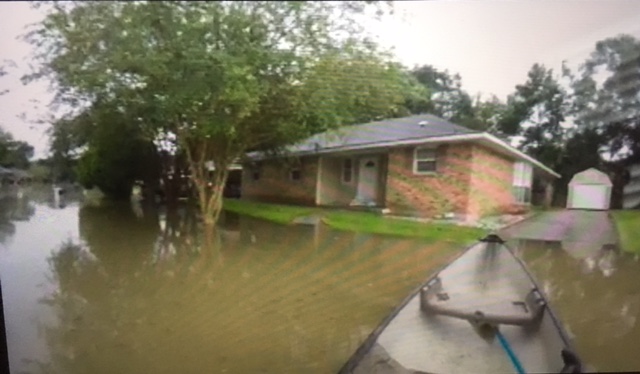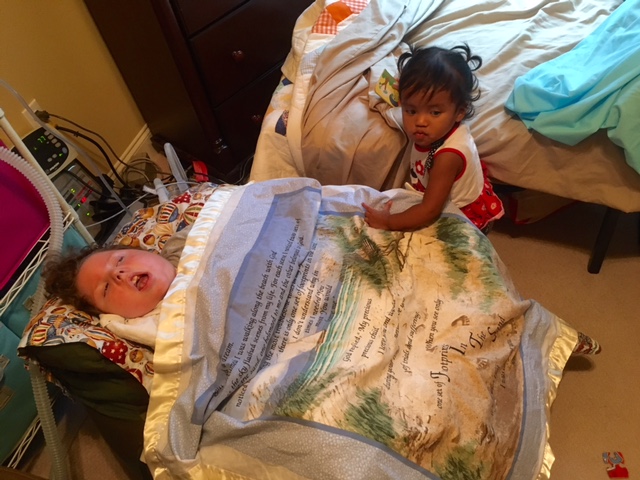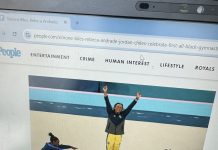This is surviving the flood, from the perspective of a mom with a medically fragile, technology dependent child.
Hurricane Katrina
During Katrina, we evacuated to Baton Rouge from Ascension Parish. We found out then that we were pregnant with our son, Braden.
Hurricane Gustav
During Gustav, we evacuated with our medically fragile, technology dependent son to a building and place we believed would be safer and would get power restored faster. Instead, we endured loss of power, taking cover for a tornado, the roof being torn off and water coming in, and a medical crisis with our son. He needed resuscitation; we had done all we could for him. We called ahead to the designated shelter for special needs, and they told us they would not take him. This was life and death, and they left him to die.
We ended up resuscitating our son 16 times, while huddled in a closet of a building with a roof torn off, until the hospital had power restored and we could get him there. This was possibly the most stressful few days of my life. My son’s life hung in the balance, not in a hospital with medical personnel, but in the hands of his parents. My son’s life hung in the balance, while those who were supposed to be there for help, refused to.
Now here come the floodwaters of 2016.
There was no named storm to prep for. There were no warnings from officials to prepare or evacuate. And the rains came; we had less than 24 hours to make decisions. Had this been been a hurricane, we would have evacuated to Texas or Florida, mainly because the wind could bring a tree down on the house. After Gustav, we will NEVER rely on the state or a shelter for refuge if we have any way around it. But by the time 18-23 inches of rain had dropped on us, we were trapped. Interstates closed, and this was unprecedented. Storms kept coming and raging, and we had to decide if we would wait it out, knowing we would end up on an island, within an inch of taking on water – or seek higher ground, if there was any to be found.
 Nobody knew whose neighborhoods would be safe. Nobody knew if they would be safe or not. Two streets over had already flooded. The back of our subdivision was starting to flood. I had seen houses two blocks away completely devastated. The surrounding neighborhoods were starting to flood. So we applied some logic, and some friends came to our rescue offering a generator and a room. We drove out, just as the street in front of our home had already flooded over and was rising.
Nobody knew whose neighborhoods would be safe. Nobody knew if they would be safe or not. Two streets over had already flooded. The back of our subdivision was starting to flood. I had seen houses two blocks away completely devastated. The surrounding neighborhoods were starting to flood. So we applied some logic, and some friends came to our rescue offering a generator and a room. We drove out, just as the street in front of our home had already flooded over and was rising.
It was all happening so fast, you have little time to process your emotions and what was happening. Being the parent of a now terminally ill, medically fragile, technology dependent child – our responsibilities are that much greater. The risks are higher, and it could mean life or death if we choose wrong. This time there weren’t many options, we were trapped.
As we stopped for gas on the way to our friend’s home, I broke down. I saw neighbors completely soaked up to their chest as they had been wading in the waters to get out. The weight of making decisions for my son washed over me like floodwaters … dirty, scary, unpredictable and just plain ugly.
The Road Ahead
You see, I am always looking at the road ahead. I have the ability to consider possible future outcomes. Should our house flood, I don’t even care about the “stuff.” It’s knowing that if our house takes on water, I will have to displace my son. We can’t stay there while it would be fixed. The mold would become so dangerous to my son in a matter of days. We would have to gut out house. In a city that already had seen THOUSANDS of houses destroyed, the impact of just how long we would have to attempt to find a place to survive was already overwhelming me, and how long we would have to wait to get supplies and a crew could be excruciatingly long. Entire subdivisions would need to be rebuilt.
Moving my son from his environment is incredibly stressful, as he does not transition well. Meaning, moving him is not easy on his systems. He doesn’t readjust to new positioning or a new environment well. Even moving him to a friend’s house had risks.


This morning (August 15, 2016), the waters in some places are receding. It’s the first time in days I feel like it’s OK to maybe breathe a small sigh of relief. The national media isn’t covering what the governor has now called a historic flooding event like this state has never seen. We have over 20,000 refugees of Louisiana affected, and those are just the ones in shelters. There are thousands of others like us with friends or family. The death toll has yet to be taken; the waters must first recede.
A Community Pulling Together
My observation about why the media hasn’t grabbed onto this thing is that we learned from Katrina. Our citizens have remained calm, organized, and civil. There is no looting. We are helping our neighbors. We offer supplies and help to complete strangers. Even if our homes are damaged, if we have a safe place to stay, we sleep on floors and help those still in danger. The media doesn’t thrive on a community pulling together in possibly the widest spread disaster this area has seen in 100 years. This is Katrina level flooding and beyond. And we weren’t prepared. But once again we will be resilient, and slowly we will recover.
After Katrina, my husband and I had about 25 students whose parents lost everything in the storms. We gathered gift cards from friends around the country to help them get back on their feet. And now we ask again. If you want to feel like you are doing something positive for a city that’s suffered so much already this summer, please consider sending gift cards. I am personally delivering some to nearly TEN special needs families with children who need special supplies and care. They have lost everything. These families will have tremendous burden trying to put the pieces back together, finding temporary housing, trying to replace lost vehicles and homes. If you feel compelled to do something to help, email me at kodilwilson {at} gmail {dot} com and I’ll send you my address to ship gift cards. I will personally ensure these make it into the hands of people in dire need. Giving to national charities may make a difference, but I can promise you these donations will have IMMEDIATE and LOCAL impact, with 100% of your donation going directly to these families in need.

















[…] Floodwaters Wash Over Me, Wave After Wave […]